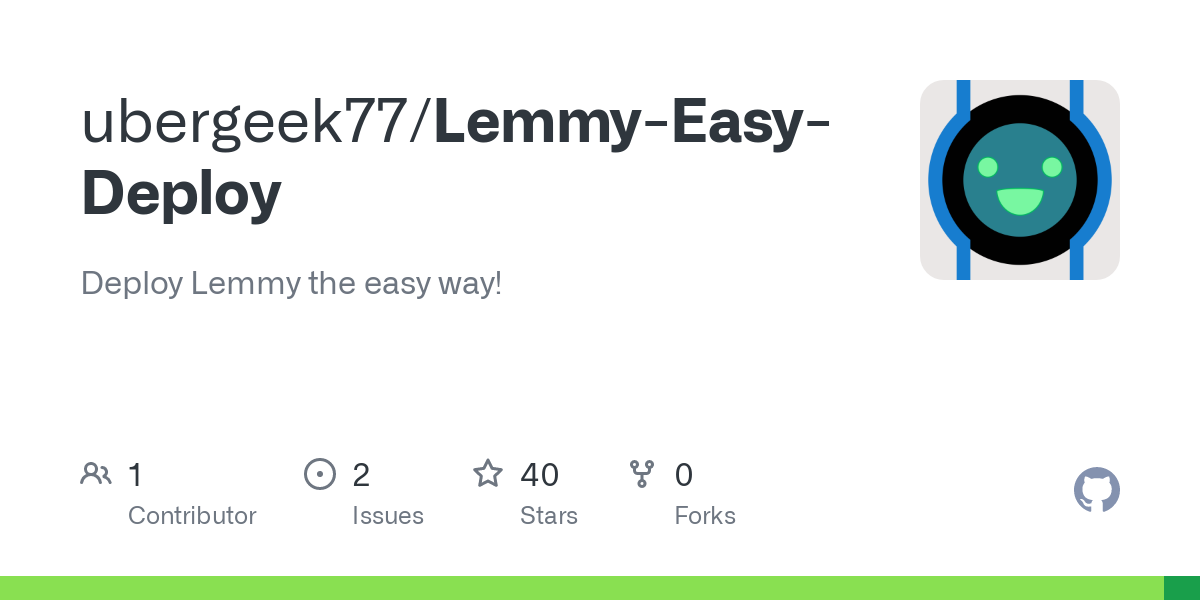- cross-posted to:
- [email protected]
- [email protected]
- cross-posted to:
- [email protected]
- [email protected]
In the past few days, I’ve seen a number of people having trouble getting Lemmy set up on their own servers. That motivated me to create Lemmy-Easy-Deploy, a dead-simple solution to deploying Lemmy using Docker Compose under the hood.
To accommodate people new to Docker or self hosting, I’ve made it as simple as I possibly could. Edit the config file to specify your domain, then run the script. That’s it! No manual configuration is needed. Your self hosted Lemmy instance will be up and running in about a minute or less. Everything is taken care of for you. Random passwords are created for Lemmy’s microservices, and HTTPS is handled automatically by Caddy.
Updates are automatic too! Run the script again to detect and deploy updates to Lemmy automatically.
If you are an advanced user, plenty of config options are available. You can set this to compile Lemmy from source if you want, which is useful for trying out Release Candidate versions. You can also specify a Cloudflare API token, and if you do, HTTPS certificates will use the DNS challenge instead. This is helpful for Cloudflare proxy users, who can have issues with HTTPS certificates sometimes.
Try it out and let me know what you think!



I use my own deployment and I’ve never had an issue with my favicon on Firefox, on both desktop and mobile. Maybe it’s a weird browser caching thing?
Do you see a favicon at lemmy.onitato.com ?
No, but I can see in your HTML the favicon is being server side rendered. It’s probably not working on Firefox because the icon is very large. Here is the URL it uses:
https://lemmy.onitato.com/pictrs/image/1ffe4c8b-3751-4ebb-aa17-ff0e21a0468b.png
Try scaling it down and uploading it again? If it’s small enough it should work immediately. I wouldn’t know how large, though. My icon is pretty tiny.